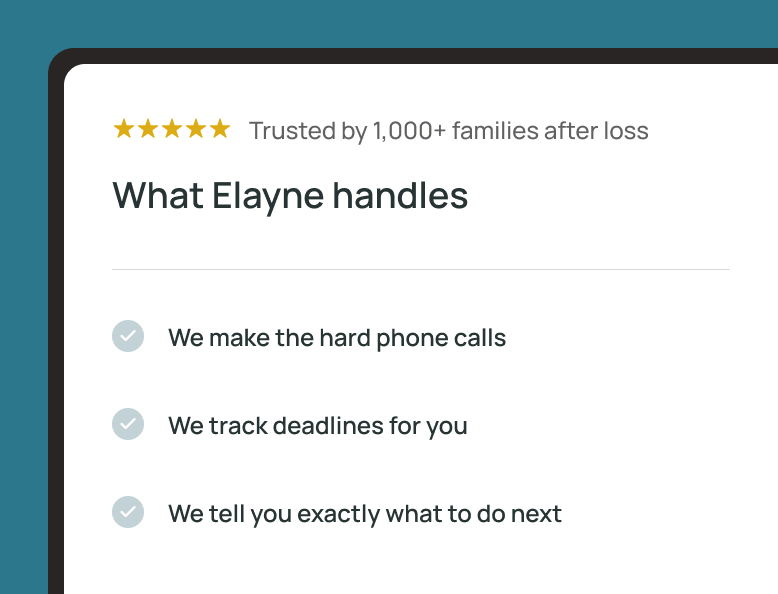Key Takeaways
- You can submit an obituary to a newspaper or online platform.
- Obituaries are a personal choice and not required by law.
- Knowing how to place and publish an obituary helps honor your loved one’s memory.
Writing and placing an obituary is one of the first public steps families often take after a death. It informs the community, honors their loved one’s life, and lets others know about funeral or memorial arrangements. If you're wondering how to submit an obituary, this guide walks you through the details of each step.
What Is an Obituary and Do You Have to Publish One?
- An obituary is a public way to share that someone has passed. It often includes a brief overview of someone’s life, and information about upcoming services. Some families publish it in a hometown paper, while others choose an online tribute.
- You don’t have to publish one by law. Families choose to do it to notify the community, preserve a record, or reflect cultural traditions.
What to Include
When writing an obituary, it helps to follow a gentle, organized flow that honors the person’s memory.
- Essentials: Include their full name, age, date and place of death, and city or town of residence.
- Life and Legacy: Share meaningful details such as education, career, military or community service, and personal interests or passions.
- Family: List immediate family members including a spouse or partner, children, parents, and siblings. You may also wish to mention loved ones who have passed before them.
- Service Details: Provide the dates, times, and locations for any viewing, funeral, graveside service, or celebration of life.
- Closing Touches: End with something personal, such as a favorite quote, a request for memorial donations, or a note of gratitude to caregivers and supporters.
How to Submit an Obituary
Publishing in a Newspaper
If you’d like to publish an obituary in a newspaper, here’s a general overview of the process:
- Contacting the newspaper’s obituary desk.
- Asking about submission deadlines, especially for weekend editions.
- Confirming word limits and placement options.
- Submitting the obituary text and photo.
- Reviewing and approving the final version before publication.
Local newspapers are a meaningful way to reach neighbors, faith communities, and longtime friends. Most papers accept submissions by email or through an online form and will send a version for review before printing. It’s a good idea to confirm word limits, deadlines, and pricing early, as these can vary by day and edition.
Online Platforms
Online memorials offer another option to celebrate a loved one’s life. They allow you to include photos, videos, and guestbooks that friends and family can access. Common options include funeral-home memorial pages, Legacy, and EverLoved. These are especially helpful when you’d like more room to share stories and memories.
How Much Does It Cost to Publish an Obituary?
Costs vary by outlet and length:
- Local Newspapers: Roughly $100 to $400 depending on length; photos often add $50 to $200.
- Major Metro Papers: Commonly $300 to $1,000+.
- Online Memorials: Many are free or low-cost. Some platforms offer expanded tribute pages for $25 to $150.
- Funeral Homes: Many funeral homes can help write and place the obituary. In general, this service is offered without an additional cost.
Conclusion
Obituaries are not only announcements. They are an act of care. A clear draft, choosing where to publish, and a final review before printing or posting can help recognize a loved one’s life. There is no single tone or length that’s “correct,” and even a short obituary can be incredibly meaningful. Above all, what matters most is that the obituary honors the person you loved, and helps others carry their memory forward as well.
FAQs
Q: What is the typical format for an obituary?
A: Most obituaries begin with a brief announcement of the death, followed by a short summary of the person’s life, a list of close family members, service details, and a closing message or note on memorial donations.
Q: How do I place an obituary?
A: First, decide where you’d like it to appear. After writing the obituary, submit it either directly to the newspaper or website you’ve selected. Another option is submitting it through a funeral home, which can provide support with the obituary’s publication.
Q: What makes an obituary meaningful?
A: A meaningful obituary is accurate, clear, and personal. It offers essential information while also celebrating the person who passed in a genuine and loving way.
Q: How much does it cost to post an obituary online?
A: Many online memorial pages are free. Some sites offer additional space for photos, messages, and stories, generally ranging from $25 to $150.
Q: When should an obituary be submitted?
A: Submitting within one to three days after the death is common, especially if service information needs to be shared soon. However, the timing can vary based on the needs of the family.
Q: What is the usual order of information in an obituary?
A: Announcement → Life and Legacy → Family → Service Details → Closing Message.
*Disclaimer: This article is for informational purposes only and does not provide legal, medical, financial, or tax advice. Please consult with a licensed professional to address your specific situation.












































